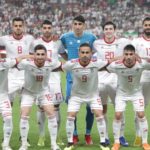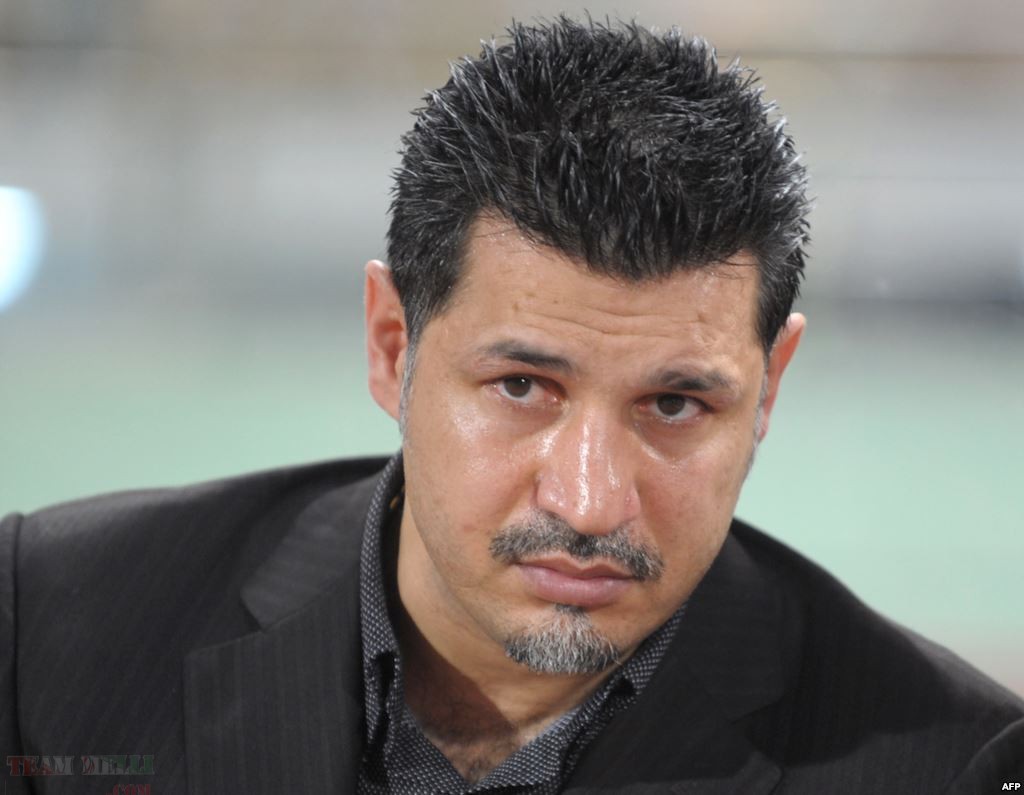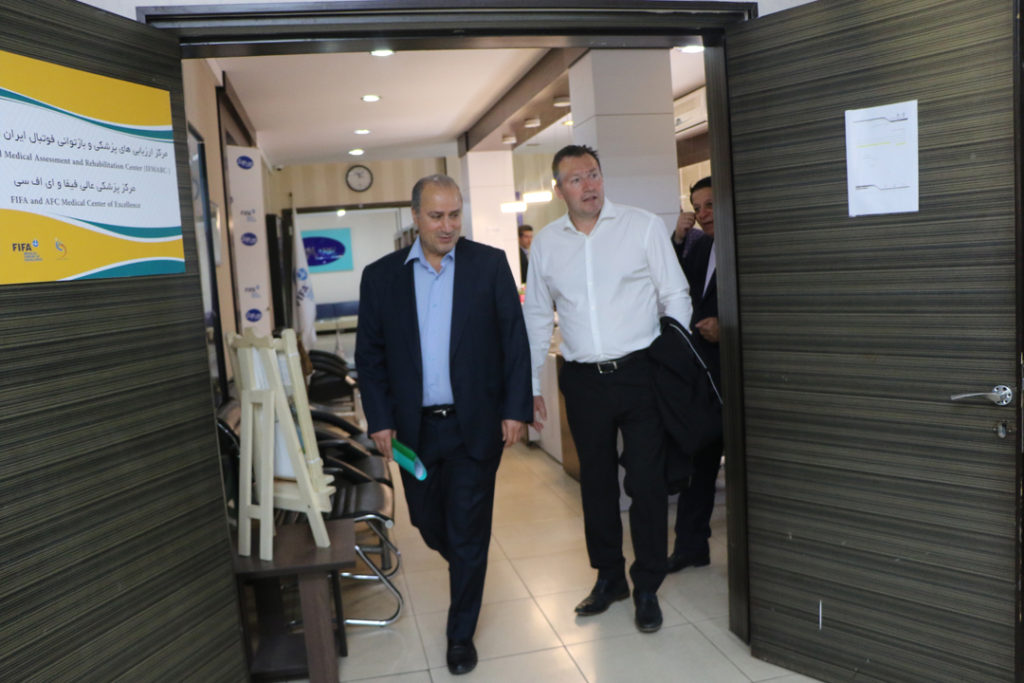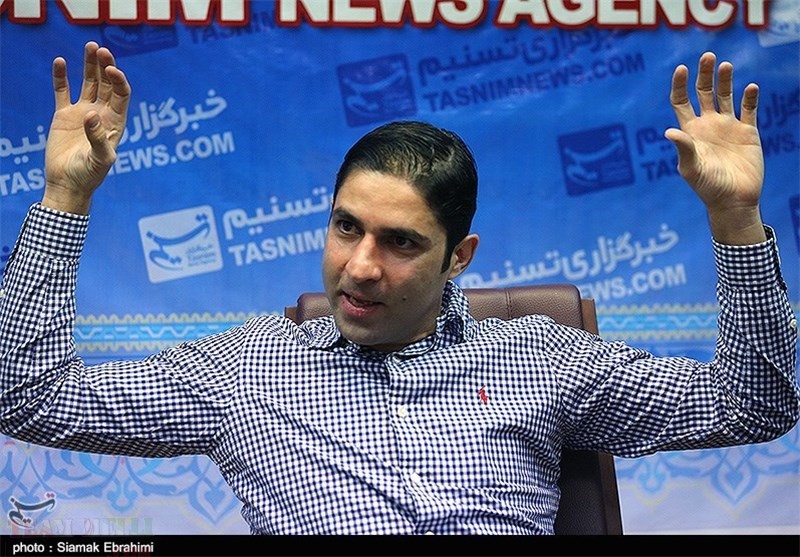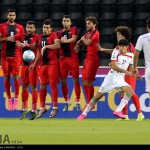One of the main trepidations of the Iranian Football Federation (FFIRI) after the appointment of Marc Wimots as Team Melli head coach was the promotion and development of Iranian assistant(s) to work alongside the Belgian for the benefit of Team Melli in future. FFIRI faced much criticism for the lack of such program although an Iranian, Markar Aghajanian was alongside Queiroz throughout his tenure.
There has been a remarkable absence of talented, skilled and experienced Iranian coaches capable of leading Team Melli in the last decade or so. The last of them was Ali Daei, who was unceremoniously sacked after defeat at the hand of rivals Saudi Arabia back in 2009.
One of the criticism pointed at Carlos Queiroz was the lack of Iranian assistants in the coaching cadre who could have been nourished and developed to become Iranian football assets in the near future.
While some young coaches like Alireza Mansourian, Ali Karimi and Javad Nekounam were added to the technical staff of Team Melli at different periods to advance their knowledge alongside Queiroz, the situation did not yield the required result and did not last long. Queiroz was accused of deliberately getting rid of these novice assistant coaches (except for Markar Aghajanian)
However, the facts are quite different from what it seems. The truth behind these assistant coaches stints at Team Melli was never properly told because Carlos Queiroz, for reasons which remained close to his heart, hardly openly spoke about the circumstances behind their recruitment and departures. Obviously, Queiroz did not want to create anarchy amongst the stakeholders and the fans while Team Melli was in need of stability and calm in its mission to qualify for the World Cup and win the AFC Asian Cup.
If we scrutinize the selection of the former players who have suddenly turned up as assistant coaches at Team Melli, we will see the shortfall of the system and how haphazardly this program is conducted, if there was any program beyond wishful thinking that is.
It was clear that Mansourian, Karimi and Nekounam were not the right choices and not exactly prepared as their appointments were mostly spontaneous rather than based on solid ground and technicality.
For sure, all the three at some stage of their careers were brilliant players and national heroes. They have served team Melli well and were all household names in Iran. All of them were popular too.
On closer scrutiny, each one of the three names came with a Caveat and a major flaw.
Mansourian was the only one that had real coaching experience. However, the less we speak about his achievement or lack of it, the better. Needless to say that he was the coach of Omid Team which was en eliminated from the Olympic qualifiers, despite winning the match away in Iraq, for fielding one ineligible player. His coaching of Esteghlal was short and not successful.
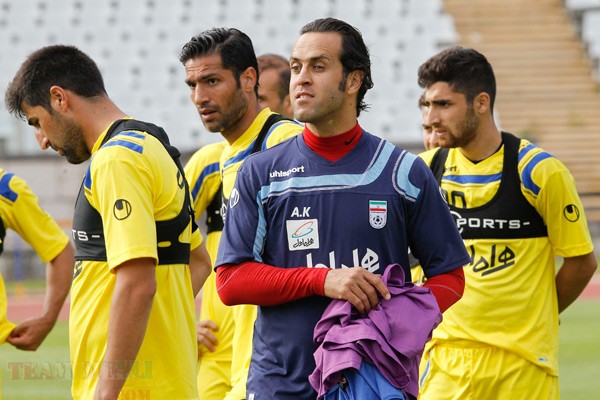 Both Karimi and Nekounam popped up without any serious and meaningful experience in coaching at club level or age-group level, let alone having experience at the international arena. Both were Team Melli Captains and likewise have other remarkable commonalities. Despite the years of being players in European teams, they were poorly disciplined and bordering arrogance while accompanying Queiroz. Lack of maturity was evident in both and their misdemeanour was obviously a serious threat to the squad stability and discipline. Karimi simply refused to attend to his Team Melli duties and unilaterally decided that he is not going to work for Queiroz. Nekounam departure from Team Melli is less clear and under a cloud of suspicion.
Both Karimi and Nekounam popped up without any serious and meaningful experience in coaching at club level or age-group level, let alone having experience at the international arena. Both were Team Melli Captains and likewise have other remarkable commonalities. Despite the years of being players in European teams, they were poorly disciplined and bordering arrogance while accompanying Queiroz. Lack of maturity was evident in both and their misdemeanour was obviously a serious threat to the squad stability and discipline. Karimi simply refused to attend to his Team Melli duties and unilaterally decided that he is not going to work for Queiroz. Nekounam departure from Team Melli is less clear and under a cloud of suspicion.
That raises many questions about the suitability of the people running the federation and making such decision as the appointment of candidates for Team Melli technical staff.
In general, such poor selection of personnel is consistent with the poor level of administration and management of Iranian football, a subject which has been spoken about for ages.
Queiroz was wrongly and unfairly accused by some media personnel that he preferred to work with an Iranian assistant coach who would not form a threat to his job at Team Melli.

The absurdity of this accusation is perhaps indicative of the small minds that feed the masses in Iran’s football as none of the former players was anywhere near Queiroz’s experience and achievement in the world of football to pose a threat. The basic truth is that the appointed Iranian assistants were not good enough in most of the departments and two of them had issues with behaviour and maturity.
Markar Aghjanian was an exception. Not only the man was mature, experienced, visionary and skilled in dealing with players and administrators, but he was also the real forte behind Queiroz’s selection of local players for Team Melli. It was no secret that Carlos Queiroz did not think highly of the domestic league. He did not attend many matches if any, instead he assigned Aghajanian and others to do the talent hinting and scouting. In fairness, they have done a great job too.
Then Queiroz leaves and a new era starts with Marc Wilmots. FFIRI admirably tries to rectify and avoid previous mistakes. Wilmots is now in charge of all national teams levels and is assigned the task of developing a set of trainers and coaches at different teams and particularly Team Melli.
Vahid Hashemian, is appointed as Assistant Coach to Marc Wilmots. Hashemian, is a former Team Melli player who has played in Germany’s Bundesliga for many years. After hanging his boots, he successfully completed coaching courses to obtain his license in Germany. That is one major accomplishment ahead of Mansourian, Karimi and Nekounam who turned up empty-handed at Team Melli. Hashemian, though, was a marriage of convenience.
In essence, the selection of Hashemian is not really an improvement and proved that very little has changed in FFIRI in the domain of Management and governance. Hashemian is a case of a man in the right place at the right time. Like his previous teammates except for the coaching license, Hashemian had very little or significant experience in the world of coaching. Yet he is appointed as the head coach of Team Melli that is attempting a long and winding road of qualifying for the FIFA World Cup for the third time running.
We said it was convenient because Hashemian speaks German, a language that Wilmots is fluent in. So, it is convenient for the Belgian coach to use Hashemian as an interpreter while calling him assistant coach. A win-win situation for everyone. The bitter part of this saga is that a proven talent like Markar Aghajanian the brain behind surveillance of talents and scouting for Team Melli, is nowhere to be seen. So cruel that Aghajanian does not speak German!
We must also not forget the appointment of the rookie coach Farhad Majidi as the head coach of Omid Team tasked with taking Iran to the Olympics for the first time in 40 years. A task that the superiorly experienced coaches in their own right such as Hassan Habibi, Ghasempour, Egon Coordes, Monajati, Mayeli Kohan, Renê Simões, Vinko Begović, Nenad Nikolić, Peyrovani, Mansourian, Nelo Vingada, Khakpour and Zlatko Kranjčar have not succeeded in.

To sum it up, the Iran football federation has failed to get this Iranian coaching development up and running. It is the cumulative result of many factors including but not limited to poor foundations, poor selection process (more likely non-existence of it) and Nepotism
If the FFIRI has a real program for the development of local coaches at Team Melli level, then they have not published it and it remains a secret for fear of scrutiny and criticism by stakeholders. FFIRI is not exactly a transparent organization to start with and it is always shrouded by secrecy.
If such selection is assigned to the Technical Committee of the football federation and national teams coaching candidacy and selection is managed and implemented by them, it confirms that this committee is dysfunctional, hopeless and serious waste of resources.

